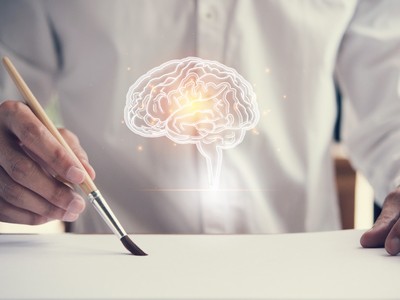
Depressive Disorders Psychologist Mermaid Beach (07) 5539 9798
Depression Psychologist Mermaid Beach

Introduction: Nervousness Symptoms Psychologist Mermaid Beach Near Me
In today's hectic and demanding world, psychological health issues have ended up being progressively common. 2 of the most typical psychological health conditions are anxiety and anxiety. While they may share some resemblances, it is very important to understand the The original source distinctions between the 2 conditions in order to look for proper treatment and support. This post aims to offer a comprehensive understanding of anxiety and depression, their signs, causes, and offered treatments.
Anxiety vs. Anxiety: Comprehending the Distinctions and Similarities
What is Anxiety?
Anxiety is a normal human emotion that everyone experiences from time to time. It is characterized by feelings of worry, worry, or worry. However, when these feelings become extreme or consistent, it may show a stress and anxiety disorder.
Symptoms of Anxiety
- Excessive worrying
- Restlessness
- Trouble concentrating
- Irritability
- Muscle tension
- Sleep disturbances
Causes of Anxiety
Anxiety can be triggered by a combination of genetic, ecological, and mental factors. Distressing life occasions, chronic stress, or a family history of anxiety conditions can increase the risk of developing an anxiety disorder.
What is Depression?
Depression is a mood disorder that affects how an individual thinks, feels, and behaves. It exceeds typical feelings of sadness or grief and can considerably impact daily performance and quality of life.
Symptoms of Depression
- Persistent unhappiness or emptiness
- Loss of interest or enjoyment in activities
- Fatigue or low energy levels
- Changes in hunger or weight
- Difficulty sleeping or oversleeping
- Feelings of worthlessness or guilt
Causes of Depression
Depression is an intricate condition with multiple contributing aspects. It can be brought on by genetic predisposition, biochemical imbalances in the brain, hormonal changes, certain medical conditions, or terrible life events.
Similarities Between Stress and anxiety and Depression
While anxiety and depression stand out disorders, they often exist side-by-side and share some common symptoms. Both conditions can cause feelings of uneasyness, irritation, problem focusing, and sleep disturbances. Additionally, individuals with stress and anxiety or anxiety might experience physical symptoms such as headaches, gastrointestinal concerns, or persistent pain.
Differences In between Anxiety and Depression
Emotional Symptoms
Anxiety is mostly identified by extreme concern and fear, while depression is marked by consistent sadness and loss of interest in activities. Individuals with stress and anxiety might feel on edge or continuously on guard, whereas those with anxiety may experience a sense of hopelessness or emptiness.
Physical Symptoms
While both stress and anxiety and anxiety can manifest physically, the particular signs differ. Anxiety typically presents with symptoms such as muscle stress, racing heart, shortness of breath, and trembling. On the other hand, anxiety may trigger low energy levels, changes in cravings or weight, and sleep disturbances.
Thought Patterns
Anxiety tends to be associated with extreme rumination and overthinking. Individuals with stress and anxiety frequently have racing thoughts and may struggle to manage their concerns. On the other hand, depression is identified by unfavorable idea patterns such as self-criticism, feelings of worthlessness, and a pessimistic outlook on life.
Impact on Daily Functioning
Both anxiety and anxiety can considerably impact everyday functioning; nevertheless, they do so in different ways. Stress and anxiety can result in avoidance behaviors or problem concentrating on tasks due to excessive worry. Depression frequently leads to decreased motivation, loss of interest in previously taken pleasure in activities, and difficulties with decision-making.
FAQs about Stress And Anxiety vs. Depression
Q: Is anxiety a symptom of depression? A: While anxiety can be a sign of depression for some individuals, it is not always the case. Stress and anxiety disorders and anxiety are distinct mental health conditions that can coexist however likewise take place independently.
Q: Can you have both anxiety and depression at the very same time? A: Yes, it is possible to have both anxiety and anxiety at the same time. This is called comorbidity, and it is relatively typical for individuals with psychological health disorders.
Q: Is anxiety or depression more common? A: Stress and anxiety disorders are slightly more widespread than depression, but both conditions are amongst the most typical mental health disorders worldwide.
Q: Can stress and anxiety develop into depression? A: While anxiety can add to the development of depression in some cases, it does not necessarily cause anxiety. However, chronic and unattended stress and anxiety can increase the risk of developing depressive symptoms.
Q: Are there efficient treatments for anxiety and depression? A: Yes, there are several evidence-based treatments available for anxiety and depression. These might consist of therapy (such as cognitive-behavioral therapy), medication, way of life changes, and self-help strategies.
Q: The length of time does stress and anxiety or anxiety last? A: The duration of stress and anxiety or depression can differ extensively depending upon private elements such as treatment adherence, support systems, and underlying causes. Some people may experience acute episodes that solve within a few weeks or months, while others might have chronic conditions that need continuous management.
Treatment For Depression And Anxiety Psychologist Mermaid Beach
How To Know If You Have Anxiety Psychologist Mermaid Beach Near Me
Isabella Whittingham Registered Psychologist Gold Coast
Surfers Paradise Chiropractic Centre-Dr. Bruce Whittingham
12 Thomas Drive, Surfers Paradise QLD 4217
(07) 5539 9798
https://surfersparadisechiropractic.com.au
Help With Depression And Anxiety Psychologist Mermaid Beach Near Me